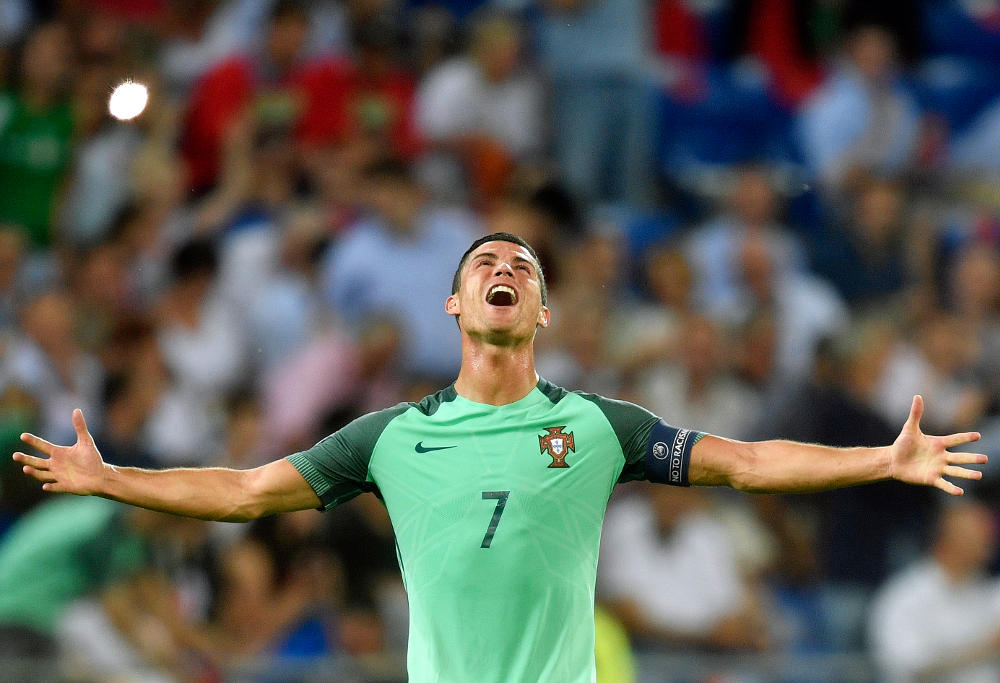This analysis will aim to give a small piece of insight whilst allowing you to get a tad nostalgic over memorable moments in recent FIFA World Cup history.
This analysis only covers performances in recent World Cups – we have taken data from Men’s FIFA World Cups held from 1998-2018 inclusive. Only teams that have performed in three or more World Cups in this time span have been included, to get a picture of their consistency over a series of tournaments as opposed to one-off performances.
Method
The method behind this analysis is quite simple. We have identified the FIFA World Ranking and performance of nation’s performing in each World Cup.
FIFA World Rankings – Calculation
In undertaking this analysis, we have used the pre-tournament FIFA World Ranking and ranked nations from 1-32 in terms of how they ranked compared to other nations that also participated in the respective tournament.
For example, in the final pre-tournament FIFA World ranking in 2014, Australia were ranked 62nd in the world, which was the lowest of all 32 teams that qualified for the 2014 FIFA World Cup. As such, Australia were assigned a rank of ‘32’ for the 2014 FIFA World Cup.
Performance Rankings – Calculation
Nations have been ranked from 1-32 in respective tournaments. Nations who did not make it out of the group stage are ranked 17-32 based on points won and goal differential. Similarly for teams exiting in the Round of 16 (9-16) and quarter finals (5-8).
Formula
(((Cumulative FIFA World Ranking in World Cups played since 1998) – (Cumulative Performance in FIFA World Ranking in World Cup’s played since 1998))/(FIFA World Cups played since and including 1998)
Additional Consideration
It should be noted that this analysis is slightly biased in favour of lower-ranked nations – for example, a team that is consistently ranked 1-4 has very little scope to ‘overperform’ and can ‘underperform’ in a big way, whilst the opposite is true for lower-ranked teams.

(Photo by Mike Owen/Getty Images)
Biggest Underperformer per Confederation (minimum 3 FIFA World Cups since and including 1998)
AFCON – Ghana – Overperform by 11.66 places (3 World Cups)
Ghana are the biggest overachievers on the grandest stage, by virtue of their scintillating performance at the 2010 FIFA World Cup. Ranked the 24th best team in South Africa, they made it to the quarter finals against Uruguay. They could have punched above their weight more than they have in this category, however Luis Suarez beat them to the punching.
A solid Round of 16 performance in 2006 also contributed to the high ranking, disposing of the Czech Republic (ranked 2nd) and the USA (ranked 6th) in the process.
A tough and unpredictable test awaits in Group H in 2022, with Portugal, Uruguay and South Korea teams who are able to beat the best on their day, but are also prone to lapses at times.
CONMEBOL – Ecuador – Overperform by 7.33 places (3 World Cups)
Ecuador have performed better than their ranking in each of their 3 FIFA World Cups since 1998. However, compared to their CONMEBOL counterparts, they have a distinct advantage in that they’ve consistently been ranked in the mid-20s of the 32 teams, which means there is a lot more potential upside to their performance vs their ranking.
The most impressive performance in the 21st century was their Round of 16 appearance in 2006, defeating Poland and Costa Rica in Group A and only being bettered by a famous David Beckham free-kick in the Round of 16.
In 2022, ‘La Tri’ have the perfect opportunity to capitalise on a weak Group A once more, and will most likely be challenging for a Round of 16 spot with Senegal and the Netherlands in a fairly open and relatively weak group.
AFC – South Korea – Overperform by 7.33 places (6 World Cups)
The South Koreans have a seriously impressive record given they have reached all 6 FIFA World Cups since 1998. Consistently ranked between the 25th-30th ranked nation at World Cups this century, it really does pose the question as to whether FIFA’s ranking system unfairly treats South Korea given consistent performances in both the Asian Cup and FIFA World Cup.
The Taeguk Warriors’ performance over this span was significantly boosted by the famous (yet very controversial) performance at the home World Cup in ’02, in which they were ranked the 30th best nation yet made the semi-finals.
The Round of 16 performance in 2010 was also memorable, however their most famous victory in recent times came at the expense of the Germans in 2018, with two late goals consigning Die Mannschaft to their first group exit since 1938.
UEFA – Netherlands – Overperform by 5.75 places (4 World Cups)
The Oranje have always had a hot and cold relationship with the FIFA World Cup in recent times – generally very hot once they qualify for the grand stage, however they have also failed to qualify on a number of occasions.
The Dutch have been involved in some of the most memorable World Cup matches in recent times, from the 16 yellow cards shown in the 2006 Round of 16 tie vs Portugal to Giovanni van Bronckhorst’s screamer in the semi final against Uruguay in 2010 and Robin van Persie’s header in a 5-1 demolition of defending champion Spain in 2014.
The game against the Socceroos in 2014 was also one of the best games of the World Cup, including Tim Cahill’s famous volley.
Since 1998, the Dutchmen have qualified 4 times, and made the semi-finals in 75% of those appearances. They will fancy themselves to capitalise on a weak Group A after a strong qualification campaign, to avoid England in the Round of 16 and to make a deep run in 2022.
CONCACAF – Costa Rica – Underperform by 0.75 places (4 World Cups)
What this analysis has concluded is that CONCACAF nations consistently underperform at World Cups when compared to their FIFA World Ranking. In fact, the Costa Ricans are the best performing team from the region, and yet they still underperform.
Costa Rica became darlings of the 2014 World Cup after topping the Group of Death involving Italy, England and Uruguay, with Keylor Navas’ heroics getting them through a penalty shootout with Greece in the Round of 16.
However, in their three other campaigns since 1998, Los Ticos have only won a solitary game and haven’t made it out of the group stages.
The Costa Ricans will find it tough going in Group E with Spain, Germany and Japan, after just scraping past New Zealand in the qualifier.

Is Ronaldo destined to return to England? (AP Photo/Martin Meissner)
Biggest Underperformer per Confederation (minimum 3 FIFA World Cups since and including 1998)
UEFA – Portugal – Underperform by 9.0 places (5 World Cups)
In 5 World Cups since 1998, Portugal have had an average FIFA World Ranking of 4.5 heading into the respective tournament.
Whilst an impressive campaign in 2006 led them to 4th place, this has been sandwiched between a string of Group Stage and Round of 16 exits. To be fair, the Round of 16 exits have come after being placed in groups with Brazil (2010) and Spain (2018), thus pitting them against difficult opponents (Spain and Uruguay) in the Round of 16.
In what is sure to be Cristiano Ronaldo’s last World Cup, Portugal might find it difficult to escape a tricky Group H with Ghana, South Korea and Uruguay if they aren’t switched on.
CONCACAF – USA – Underperform by 8.4 places (5 World Cups)
In 5 World Cups since and including 1998, the USA have had an average FIFA World Ranking of 10 heading into the respective tournament.
While the Americans haven’t done too badly at recent World Cups (quarter finalists in 2002, R16 in 2010 and 2014), placing dead last in 1998 when ranked the 10th best team at the World Cup and a 25th placing in 2006 when ranked 6th haven’t helped their cause.
The storylines in the politically hostile Group B in the 2022 version will be plentiful – but will the US be able to atone for their lack of appearance at the 2018 FIFA World Cup and perform?
AFCON – Tunisia – Underperform by 7.25 places (4 World Cups)
In good news for Australians, the Tunisians are the African continent’s worst performers on the grand stage compared to FIFA World Rankings. In their last 4 World Cups, Tunisia have only scored the one win, against a weak Panama squad in 2018.
Graham Arnold’s nation will be hoping that this unenviable record stays for another 4 years.
CONMEBOL – Argentina – Underperform by 3.2 places (6 World Cups)
With an average ranking of 5 heading into the last 6 FIFA World Cups, it is surprising that Argentina only underperform by 3.2 points given the rhetoric around the nation’s consistent failure in World Cups.
A group stage exit in 2002’s Group of Death didn’t help the cause, however in other versions the Argentinians have been relatively consistent performers, but on 3 occasions have fell at the quarter final hurdle.
One would expect Lionel Messi to progress through the group stage in his World Cup finale, however a difficult challenge at the Round of 16 will await with France or Denmark.
AFC – Saudi Arabia – Underperform by 2.0 places (4 World Cups)
Saudi Arabia are, perhaps unsurprisingly, the whipping boys of the FIFA World Cup. With an average rank of 27 in FIFA World Cups since 1998, they still fail to live up to this ranking.
The Saudi’s will be looking to build on their first World Cup win in their last 12 against Egypt in 2018, and followed this up with an impressive campaign, frustrating the might of the Socceroos in the process.
With Mexico looking quite rigid during large portions of their qualifying campaign, and Poland more or less relying on Robert Lewandowski up front, could the Saudi’s surprise a few people come November?
What does this analysis say about FIFA World Rankings per continent?
What this brief analysis indicates is perhaps the CONCACAF nations are overrated in FIFA World Rankings, whilst South American nations are extremely competitive and live up to their high rankings.
Given nearly 50% of teams come from UEFA in the current format, it is expected that there would be a range of over/underperforming nations from the European continent, as is evident through the data.
On average, the AFC are ranked lowest, and as such have the most opportunity for upside in this analysis, however seem to fare reasonably well on the big stage in comparison to their rankings.
Is there a correlation between FIFA World Ranking and FIFA World Cup performance on the whole?
Correlation is defined as a mutual relationship or connection between two or more things. A correlation coefficient of 1 indicates a perfect positive correlation – i.e. if teams ranked 1-32 in a FIFA World Cup finished in that same order, that would indicate a correlation coefficient of 1.
If teams finished in reverse order, that would give a correlation coefficient of -1. A correlation coefficient of 0 implies that the relationship or connection between the FIFA World Cup ranking and FIFA World Cup performance is unrelated.
FIFA World Cup Correlation Coefficient
1998 0.39
2002 0.32
2006 0.43
2010 0.42
2014 0.61
2018 0.44
As can be seen above, the correlation between FIFA World Cup rankings and performances ranges from 0.32 (in 2002) to 0.61 (in 2014). This implies that there is a positive linear relationship between FIFA World Cup rankings and FIFA World Cup performances, however can be quite a weak link at times.
All in all, good news for Australia who are currently ranked the 27th best nation heading into Qatar!
